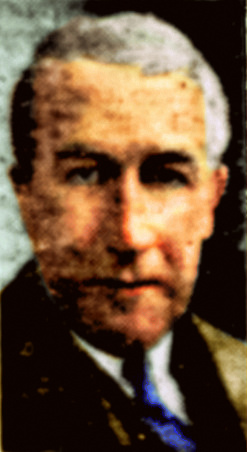The Pittsburgh Press (April 18, 1944)


I DARE SAY —
Many a true world–
By Florence Fisher Parry
One of the most pungent comments on the Willkie defeat can be found in Newsweek for April 17 in Raymond Moley’s excellent column, “Perspective.” Not only does it apply to Wendell Willkie, but it applies to every one of us who thinks that he can accomplish anything single-handed. No one so strong but needs help. This is what Mr. Moley has to say:
It was Mr. Willkie who defeated Mr. Willkie. Ever since his nomination in 1940, he has tried to enjoy the sweet satisfaction of two irreconcilable roles. He has tried to lead a party and be independent of it. He has tried to be a free commentator on public affairs and an actor in those affairs. It can’t be done. Not in this world. The thousands of average people who pay for theater tickets at night, the next morning pay for newspapers which pan the play. They don’t want actors’ opinions or critics’ acting.
Let us take an example from the dust of the last century – William E. Gladstone. Whenever, in his long career as opposition leader or Prime Minister, Gladstone decided to bring his party to a new course of action, he labored incessantly, patiently and earnestly with his fellow leaders. He made more speeches in a year than Willkie has made in his life, but they were mostly in the homes of his colleagues or in the cabinet room, and the net of it all was that Gladstone ultimately brought his party around to almost every position that he thought best. That is party leadership.
Public speeches are easy to make. A crowd doesn’t talk back. It cheers or boos; but the private persuasion of doubtful colleagues is hard labor, for it must be achieved by a mastery of facts and endless patience…
The loss of Mr. Willkie has been serious to him, to the party and to the country.
I read this passage over twice. It struck home. It is true what Mr. Moley says. The old saw, “Hew to the line and let the chips fall where they may” is a good metaphor so long as one is adjured to disregard the “chips” only; but if, when hewing to the line, one cleaves so deep that the timber which one would plane falls apart, that is not good carpentering.
Bristling facts
Lawrence Sullivan wrote a peerless report on our present federal government which, for candor and bristling facts, is matched only by Senator Harry F. Byrd’s report to the nation after having investigated non-essential federal expenditures. Here are some facts which Mr. Sullivan divulges:
Our federal government has a payroll of $522 million per month. That’s $18 million a day; $42,500 a minute. This payroll pays 3,300,000 federal employees. That means that to every three men now in the Armed Forces, there is one government jobholder. That means that our government employs twice as many people to do its civil, not military, mind you civil work, than are employed by this country’s entire steel industry, one-half again as many as are employed in ship construction; several times as many as the states employ. For example, Pennsylvania has 44,500 state employees and she has 215,000 federal employees.
And how do you suppose these 215,000 federal employees are going to vote in November?
Senator Byrd’s report
It’s too bad that Senator Byrd’s report was not required reading for every voting citizen of the United States. Here are a few sentences of its testimony:
Our government is the chief offender in wasting and hoarding manpower. At no time in history has there been so much waste and inefficiency as now exists in the multitude of bureaus which sap the strength of our nation. It is imperative that the people of the United States become aware of this shocking abuse on manpower in the federal government, and that they promote the transfer of all unnecessary government workers to essential war industries.
Unless this is done quickly, the overstaffing in the federal establishment will constitute a serious peril in our war effort. Excluding those engaged in mechanical and construction work, one may say that one-third of the entire civilian personnel of the federal government could be dismissed.
Mr. Sullivan offers the development of OPA as typical of our present government’s tendency to extend its authority, expand its payrolls and invite voting support. The OPA began in April 1941, with a staff of 84. In one year, its staff numbered more than 8,000, and by its second birthday, it employed 90,000 persons.
